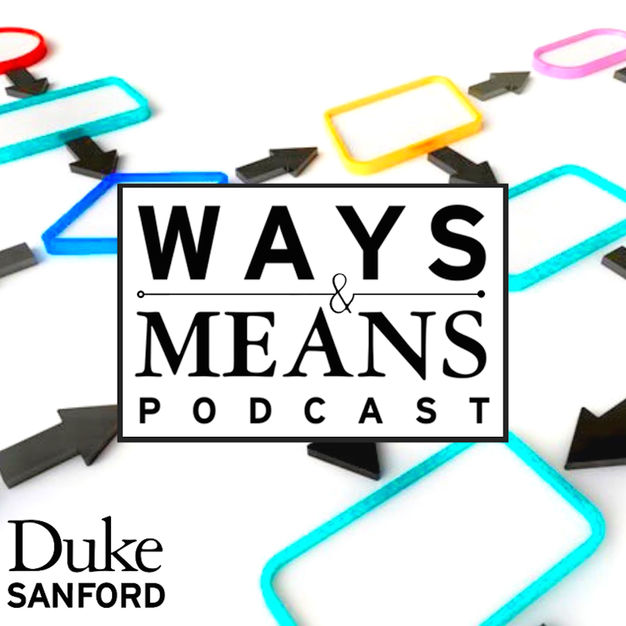
Ways & Means
Ways and Means is a small radio show featuring bright ideas for how to improve human society. The show is produced by the Sanford School of Public Policy at Duke University.
- 31 minutes 28 secondsS9 Episode 1: Missing Votes
Why many college students' ballots are getting tossed — and what could be done about it.
---
In this episode of Ways & Means – as we head into the 2024 elections – why lots of North Carolina college students’ votes did not count in the last election, or the time before that, or the time before that. Why those votes weren’t counted, and how to prevent it from happening again.
Guests:
- Gunther Peck, Associate Professor of History and Public Policy Studies, Duke University
- Duke Student Research Team Members: Ameya Rao, Hannah McKnight, Kathryn Thomas
- Tiffany Crawford, Master of Public Administration student at North Carolina Central University
29 April 2024, 6:06 pm - 21 minutes 59 secondsS8 Episode 8: Goodbye, Cloud Factory
In this episode: how a crusade shut down a coal-fired Chicago power plant for good. What the closing of that plant meant for children’s health and the environment. And what it didn’t mean.
This is the eighth and final episode in our “Climate Change Solutions” series, where we look at research-based ideas to help cool a rapidly heating planet.
Guests:
- Kimberly Wasserman is Exeutive Director of the Little Village Environmental Justice Organization, and past winner of the Goldman Environmental Prize.
- Sarah Komisarow is Assistant Professor of Economics and Public Policy at Duke University.
- Emily Pakhtigian is a former PhD student in public policy at Duke, now Assistant Professor at the School of Public Policy at Penn State University.
- Youki Terada is Editor at Edutopia from the George Lucas Educational Foundation.
Season 8 of Ways & Means is made possible thanks to support from the Office of the Provost at Duke University. Find out more about the Duke Climate Commitment.
6 December 2023, 3:12 pm - 26 minutes 23 secondsS8 Episode 7: Climate Migration: Why People Leave and What Might Help Them Stay
In this episode of Ways & Means: the hidden role that climate plays in the story of migration. How a changing climate is driving thousands of people to enter the U.S. each year. And how relatively small, inexpensive changes on the ground could make a difference with a daunting geopolitical problem.
This is the seventh episode in our “Climate Change Solutions” series, where we look at research-based ideas to help cool a rapidly heating planet.
Guests:
- Sarah Bermeo is a political economist and associate professor of public policy and political science in the Sanford School at Duke University. She directs Duke’s Program on Climate-Related Migration.
- Abrahm Lustgarten is a ProPublica reporter. His new book, On The Move,The Overheating Earth and the Uprooting of America, explores the connection between climate change, American lives and migration.
- Pedro Santos is a Honduran farmer.
- Also: voices of migrants from Guatemala
Season 8 of Ways & Means is made possible thanks to support from the Office of the Provost at Duke University. Find out more about the Duke Climate Commitment.
16 November 2023, 3:05 pm - 20 minutes 10 secondsS8 Episode 6: The Tiny Packaging Tweak That Could Help The Planet
In this episode: kicking America’s multi-billion-dollar food waste habit. How tons of wasted food contribute to climate change, and how one simple change – better food date labels – just might help make a dent in the problem.
This is the sixth episode in our “Climate Change Solutions” series, where we look at research-based ideas to help cool a rapidly heating planet.
Guests:
- Norbert Wilson, Director, Duke World Food Policy Center
- Roni Neff, Associate Professor, Johns Hopkins Bloomberg School of Public Health
- Congresswoman Chellie Pingree (D-Maine)
Season 8 of Ways & Means is made possible thanks to support from the Office of the Provost at Duke University. Find out more about the Duke Climate Commitment.
20 September 2023, 9:00 am - 20 minutes 13 secondsS8 Episode 5: Bringing Water to Thirsty Fields With Help From the Sun
In this episode of Ways & Means – New research into how solar mini-grids could change lives for farmers in Ethiopia, and why that matters for the climate as a whole. This is the fifth episode in our Climate Change Solutions series, where we look at surprising answers to the question of what we can do to help cool a rapidly heating planet.
Guests:
- Jonathan Phillips, Director, James E. Rogers Energy Access Project at Duke University
- Rahel Bekele, Postdoctoral Associate at Duke University’s Sanford School of Public Policy, DREAM Project Team Member
- Marc Jeuland, faculty member at Duke Sanford School of Public Policy and Duke Global Health Institute, Principal investigator DREAM Project
- Resources, Credits, Transcript
Season 8 of Ways & Means is made possible thanks to support from the Office of the Provost at Duke University. Find out more about the Duke Climate Commitment.
30 March 2023, 2:10 pm - 18 minutes 31 secondsS8 Episode 4: How Cleaner Cookstoves Can Help Build a Healthier Planet
Upgrading stoves for people in the developing world could bring about a double win: improving people’s lives while making a big contribution to fighting climate change. We follow along with Duke Professor Subhrendu Pattanayak on a research trip to rural Kenya, and are invited into people's homes to see how they cook, and what might make them change their methods.
This is the fourth in our series Climate Change Solutions, a look at surprising answers to the question of what we can do to help cool a rapidly heating planet.
Guest:
- Subhrendu Pattanayak, Oak Foundation Distinguished Professor of Environmental and Energy Policy, Duke Sanford School of Public Policy
Season 8 of Ways & Means is made possible thanks to support from the Office of the Provost at Duke University. Find out more about the Duke Climate Commitment.
8 March 2023, 7:50 pm - 1 minute 43 secondsWelcome Lauren Rosenthal
We are thrilled to welcome Lauren Rosenthal to the Ways & Means host chair! Lauren is an award-winning reporter and audio producer. Recently she's been focused on climate stories. (Check out her work on Season 2 of "In Deep," a podcast from APM Reports + American Public Media which explored "one city's year of climate chaos.") Lauren will start by hosting the next episodes of our Climate Change Solutions series.
8 March 2023, 6:24 pm - 22 minutes 17 secondsS8 Episode 3: Greener Pastures: The search for climate-friendly ways to raise animals.
In this episode of Ways & Means, we explore the impacts of meat production. Can we find a better way to raise animals as food and help the planet at the same time?
This is the third in our series Climate Change Solutions, a look at surprising answers to the question of what we can do to help cool a rapidly heating planet.
Guests:
- Cameron Oglesby, journalist and Duke Sanford School of Public Policy Master of Public Policy student
- North Carolina farmer Johnny Rogers
- Jennifer Curtis, Firsthand Foods
- Lee Miller and Michelle Nowlin, Duke’s Environmental Law and Policy Clinic
- A-dae Romero-Briones, Native Agriculture and Food Systems program at First Nations Development Institute
Season 8 of Ways & Means is made possible thanks to support from the Office of the Provost at Duke University. Find out more about the Duke Climate Commitment.
17 November 2022, 7:20 pm - 18 minutes 8 secondsS8 Episode 2: Getting Strategic with Solar
Location, location, location. Place matters a lot when it comes to the impact solar panels can have on the environment. The biggest environmental benefit comes from regions powered by coal. If your local electric utility runs on coal and you install solar panels on your home, it means that the power plant doesn’t have to burn as much coal to power your home, and that is really good for the climate.
In this episode of Ways & Means: getting strategic when it comes to solar subsidies. This is the second episode in our series, Climate Change Solutions.
Guests:
- Joe Opyoke, retired coal miner
- Elizabeth Opyoke Cruikshank, Solar Holler in West Virginia
- Bobby Harris, PhD Environmental Economics and Policy, Duke, '22
- Steven Sexton, professor, Sanford School of Public Policy, Duke University
Season 8 of Ways & Means is made possible thanks to support from the Office of the Provost at Duke University. Find out more about the Duke Climate Commitment.
12 October 2022, 9:00 am - 22 minutes 43 secondsS8 Episode 1: Paying for a Healthy Planet
The Amazon has been called the lungs of the planet. Its dense jungles play a key role in absorbing the Earth’s greenhouse gases, but the forest is disappearing quickly. In this episode: research from Colombia, Africa and China illustrates how economics can help slow deforestation and combat the climate crisis.
Guests:
- Lina Moros, Universidad de los Andes, Bogota, Colombia
- Wumeng He, Wuhan University, China; Duke Kunshan University
- Alex Pfaff, Duke University
This is the first in our series Climate Solutions.
Find out more about the film Sonic Forest, including the song Let Me Breathe and the group Stand for Trees.
Season 8 of Ways & Means is made possible thanks to support from the Office of the Provost at Duke University. Find out more about the Duke Climate Commitment.
14 September 2022, 9:00 am - 54 minutes 58 secondsDebugger Presents: Begged and Borrowed
Special Takeover: The Debugger podcast has taken over the Ways & Means feed for a three-part series: Defending Democracy (and Us!) from Big Tech. This episode is the third of the series.
Large technology companies are so powerful they now threaten democracy. They are too big to sue, and current regulations are not holding them responsible for their actions or outcomes. What can be done when a large tech company is doing something that is harmful to society? How can the technology companies that want to differentiate themselves demonstrate they are behaving responsibly? Well – this isn’t the first time the U.S. has been faced with a large, runaway industry that needed effective government oversight. We’ll look closely at the governance frameworks that are used for big banks, environmental polluters, drug companies to allow them to demonstrate responsible decision making.
The series is produced with support from the Cyber Policy Program at Duke University’s Sanford School of Public Policy, and Duke’s Kenan Institute for Ethics.
16 March 2022, 7:35 pm - More Episodes? Get the App
Your feedback is valuable to us. Should you encounter any bugs, glitches, lack of functionality or other problems, please email us on [email protected] or join Moon.FM Telegram Group where you can talk directly to the dev team who are happy to answer any queries.
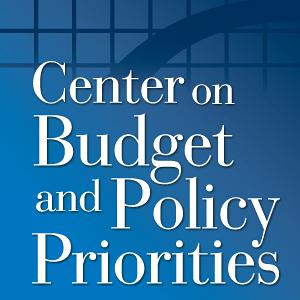 Center on Budget and Policy Priorities
Center on Budget and Policy Priorities
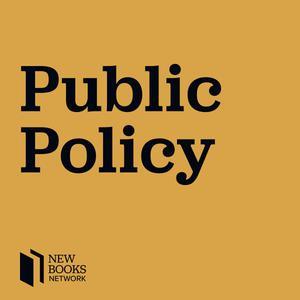 New Books in Public Policy
New Books in Public Policy
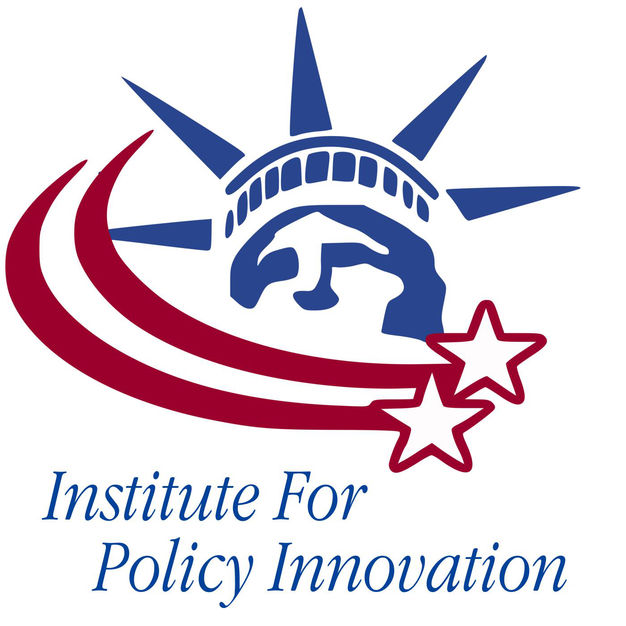 Institute for Policy Innovation (IPI) Public Policy Podcast
Institute for Policy Innovation (IPI) Public Policy Podcast
 Women and Public Policy Program Seminar Series
Women and Public Policy Program Seminar Series
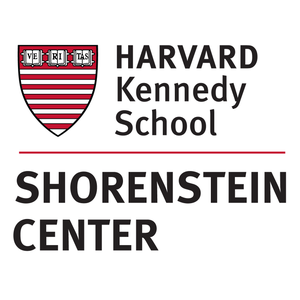 Shorenstein Center Media and Politics Podcast
Shorenstein Center Media and Politics Podcast